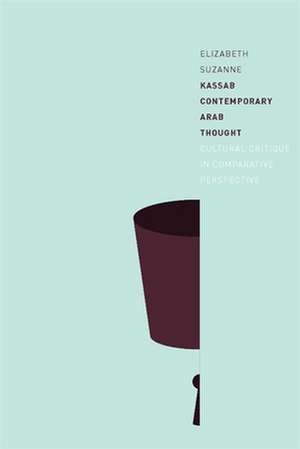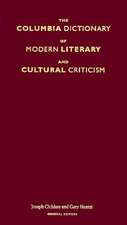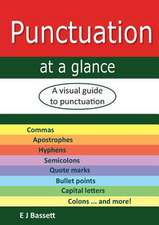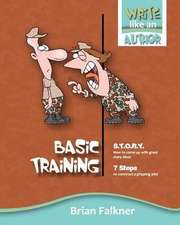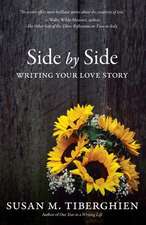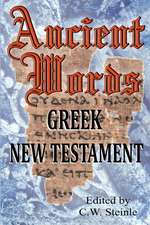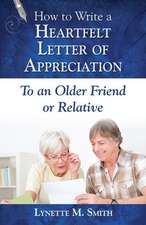Contemporary Arab Thought – Cultural Critique in Comparative Perspective
Autor Elizabeth Kassaben Limba Engleză Paperback – 10 dec 2009
Preț: 343.07 lei
Nou
Puncte Express: 515
Preț estimativ în valută:
65.64€ • 68.72$ • 54.32£
65.64€ • 68.72$ • 54.32£
Carte tipărită la comandă
Livrare economică 07-21 aprilie
Preluare comenzi: 021 569.72.76
Specificații
ISBN-13: 9780231144896
ISBN-10: 023114489X
Pagini: 496
Dimensiuni: 153 x 233 x 27 mm
Greutate: 0.66 kg
Editura: Columbia University Press
ISBN-10: 023114489X
Pagini: 496
Dimensiuni: 153 x 233 x 27 mm
Greutate: 0.66 kg
Editura: Columbia University Press
Notă biografică
Elizabeth Suzanne Kassab
Cuprins
Preface
Introduction: Cultural Malaise and Cultural Identity in Twentieth-Century Western, Postcolonial, and Arab Debates
1. The First Modern Arab Cultural Renaissance, or Nahda: From the Mid-Nineteenth Century to the Mid-Twentieth Century
2. Critique After the 1967 Defeat
The Existential Dramatization of Critique the Day After the Defeat: Saadallah Wannous's Theatrical Oeuvre
Humanistic Nationalism and Critical Reason: Qustantin Zurayq
The Critique of Religious-Metaphysical Thought: Sadeq Jalal al-Azm
The Critique of Ideology and Historicization: Abdallah Laroui
Gendering Critique: Nawal el-Saadawi and the Late-Twentieth-Century Arab Feminists
The Radicalization of Critique and the Call for Democracy: Reclaiming the Individual's Critical Faculties
3. Marxist, Epistemological, and Psychological Readings of Major Conferences on Cultural Decline, Renewal, and Authenticity
The Cairo Conference of 1971: "Authenticity and Renewal in Contemporary Arab Culture"
The Kuwait Conference of 1974: "The Crisis of Civilizational Development in the Arab Homeland"
The Cairo Conference of 1984: "Heritage and the Challenges of the Age in the Arab Homeland: Authenticity and Contemporaneity"
Critique in These Conferences: The Fixation on Tradition and the Intellectualization of the Malaise
4. Critique in Islamic Theology
From the Unthought and the Unthinkable to the Thinkable: Mohammed Arkoun
The Historicity of Revelation and the Struggle for Thought in the Time of Anathema: Nasr Hamid Abu Zayd
Feminist Historicization of Religious Traditions: Nazira Zain al-Din, Fatima Mernissi, and Leila Ahmed
An Islamic Theology of Liberation: The "Islamic Left" of Hassan Hanafi
A Christian Arab Theology of Liberation: Naim Ateek and Mitri Raheb in Palestine-Israel
On the Potential for Critique in Traditional Islam: Talal Asad's Analysis of the Public Criticism by Ulemas in Saudi Arabia
Islamic Critique and the Cultural Malaise
5. Secular Critique
Critique of the Exclusive Monopoly over "True" Islam: Farag Fouda
The Importance of Keeping the Debate on the Human Level: Fouad Zakariyya
Critique of the Essentialist and Romantic Conception of Identity: Aziz al-Azmeh
Critique of the Islamicization of Knowledge and the Quest for an Indigenous Social Science: Bassam Tibi, Abdelkebir Khatibi, and Hisham Sharabi
Critique of the Conciliatory Pattern of Thinking: Muhammad Jaber al-Ansari, Hisham Sharabi, and Nadeem Naimy
Secularism, Democracy, and Cultural Critique
Recentering the Historical, the Human, and the Partial: The Secular Call for Democracy and Human Rights
6. Breaking the Postcolonial Solitude: Arab Motifs in Comparative Perspective
The Western Debates
The Non-Western Postcolonial Debates
Common Leitmotivs and Arab Specifi cities
Shifting Priorities
Conclusion: The New Nahda Impulses, Reclaiming the Right to Freedom and Life
Notes
Bibliography
Index
Introduction: Cultural Malaise and Cultural Identity in Twentieth-Century Western, Postcolonial, and Arab Debates
1. The First Modern Arab Cultural Renaissance, or Nahda: From the Mid-Nineteenth Century to the Mid-Twentieth Century
2. Critique After the 1967 Defeat
The Existential Dramatization of Critique the Day After the Defeat: Saadallah Wannous's Theatrical Oeuvre
Humanistic Nationalism and Critical Reason: Qustantin Zurayq
The Critique of Religious-Metaphysical Thought: Sadeq Jalal al-Azm
The Critique of Ideology and Historicization: Abdallah Laroui
Gendering Critique: Nawal el-Saadawi and the Late-Twentieth-Century Arab Feminists
The Radicalization of Critique and the Call for Democracy: Reclaiming the Individual's Critical Faculties
3. Marxist, Epistemological, and Psychological Readings of Major Conferences on Cultural Decline, Renewal, and Authenticity
The Cairo Conference of 1971: "Authenticity and Renewal in Contemporary Arab Culture"
The Kuwait Conference of 1974: "The Crisis of Civilizational Development in the Arab Homeland"
The Cairo Conference of 1984: "Heritage and the Challenges of the Age in the Arab Homeland: Authenticity and Contemporaneity"
Critique in These Conferences: The Fixation on Tradition and the Intellectualization of the Malaise
4. Critique in Islamic Theology
From the Unthought and the Unthinkable to the Thinkable: Mohammed Arkoun
The Historicity of Revelation and the Struggle for Thought in the Time of Anathema: Nasr Hamid Abu Zayd
Feminist Historicization of Religious Traditions: Nazira Zain al-Din, Fatima Mernissi, and Leila Ahmed
An Islamic Theology of Liberation: The "Islamic Left" of Hassan Hanafi
A Christian Arab Theology of Liberation: Naim Ateek and Mitri Raheb in Palestine-Israel
On the Potential for Critique in Traditional Islam: Talal Asad's Analysis of the Public Criticism by Ulemas in Saudi Arabia
Islamic Critique and the Cultural Malaise
5. Secular Critique
Critique of the Exclusive Monopoly over "True" Islam: Farag Fouda
The Importance of Keeping the Debate on the Human Level: Fouad Zakariyya
Critique of the Essentialist and Romantic Conception of Identity: Aziz al-Azmeh
Critique of the Islamicization of Knowledge and the Quest for an Indigenous Social Science: Bassam Tibi, Abdelkebir Khatibi, and Hisham Sharabi
Critique of the Conciliatory Pattern of Thinking: Muhammad Jaber al-Ansari, Hisham Sharabi, and Nadeem Naimy
Secularism, Democracy, and Cultural Critique
Recentering the Historical, the Human, and the Partial: The Secular Call for Democracy and Human Rights
6. Breaking the Postcolonial Solitude: Arab Motifs in Comparative Perspective
The Western Debates
The Non-Western Postcolonial Debates
Common Leitmotivs and Arab Specifi cities
Shifting Priorities
Conclusion: The New Nahda Impulses, Reclaiming the Right to Freedom and Life
Notes
Bibliography
Index
